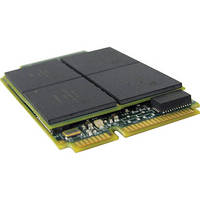Anyone knows how the audio compares to the Asus ROG Maximus VI Impact Mini-ITX? I don't see "Purity Audio" in the specs or on the board, but it is running the Realtek ALC1150. The headphone amp and DTS connect are very welcome though.
I just want a mITX board with decent sound for once. I'm not sure I want to sacrifice the mSATA or 2 additional SATA ports just to go for the Asus which is going to definitely be more expensive.
The impact uses M.2/NGFF, which is better(faster) than mSATA so you aren't losing any capability with the Asus board. As for losing two SATA ports when going the Asus route, wellm on the Asrock, SATA5 and SATA6 ports are shared. You can't use SATA5 and mSATA, and you can't use SATA6 and eSATA. The Asus board just ditches the SATA ports as they are used by the NGFF and eSATA.
As for sound, IIRC the Impact uses the same realtek audo chip, different(better) headphone amp and different(better) capacitors. The implementation on the Impact is likely to be better, but how much better can't be determined until sound testing comparisons.
![[H]ard|Forum](/styles/hardforum/xenforo/logo_dark.png)
